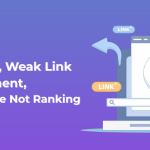Table Of Content
Recently, someone asked on Reddit about linking to popular websites like (Wikipedia). The question looks something like this:
“Hello guys I just want to ask what will happen I create external link to a popular website like (wikipedia) or something else? Is it godd for ranking or no?”
So here is the response from John Mueller:

Here’s Mueller’s valuable insight into the true significance of links in SEO.
1. The Myth Of Linking To High-Authority Sites:
The question I asked John Mueller was simple, yet thought-provoking: Does linking to a high-authority site like Wikipedia affect a smaller site’s search ranking? Many SEO professionals have been perplexed by this question, with some believing that outbound links could boost rankings.
2. Mueller’s Response: Nothing Happens
Mueller clarified that linking from a smaller site to a high-authority site doesn’t directly affect its search rankings or credibility. Some people might be surprised by this revelation, since SEOs believed that such links would boost rankings. User value should be the focus of SEO, not manipulating search engine algorithms.
3. Quality Over Quantity – A Key SEO Principle
Mueller’s advice is that SEO efforts should always focus on providing value to users. Search rankings won’t be affected by linking to popular sites without context or a real purpose. Users expect search engines to deliver relevant and valuable content. Thus, aligning your linking strategy with this principle is important.
The Purpose Of Outbound Links
Outbound links can significantly contribute to enhancing the user experience and the credibility of your content when used judiciously. Mueller highlighted that outbound links should serve a clear purpose and add value to the reader’s experience. Such links can be used to:
✔Expand Upon Points: When you reference an external source to provide additional information or elaboration on a topic, it enriches the user’s understanding.
✔Provide Evidence Or Further Reading: Citing reputable sources to support your claims or provide readers with more in-depth information can establish your content’s credibility.
✔Explain Complex Terms: If you encounter technical or industry-specific jargon, linking to explanatory resources can make your content more accessible to a broader audience.
✔Direct Users To Relevant Resources: Recommending useful tools, tutorials, or guides can be valuable to your audience and establish your site as a helpful authority in your niche.
Overall, John Mueller’s insights show that linking without context is pointless in SEO. Focus on providing valuable and relevant content for your users instead of chasing after outbound links to high-authority sites.






